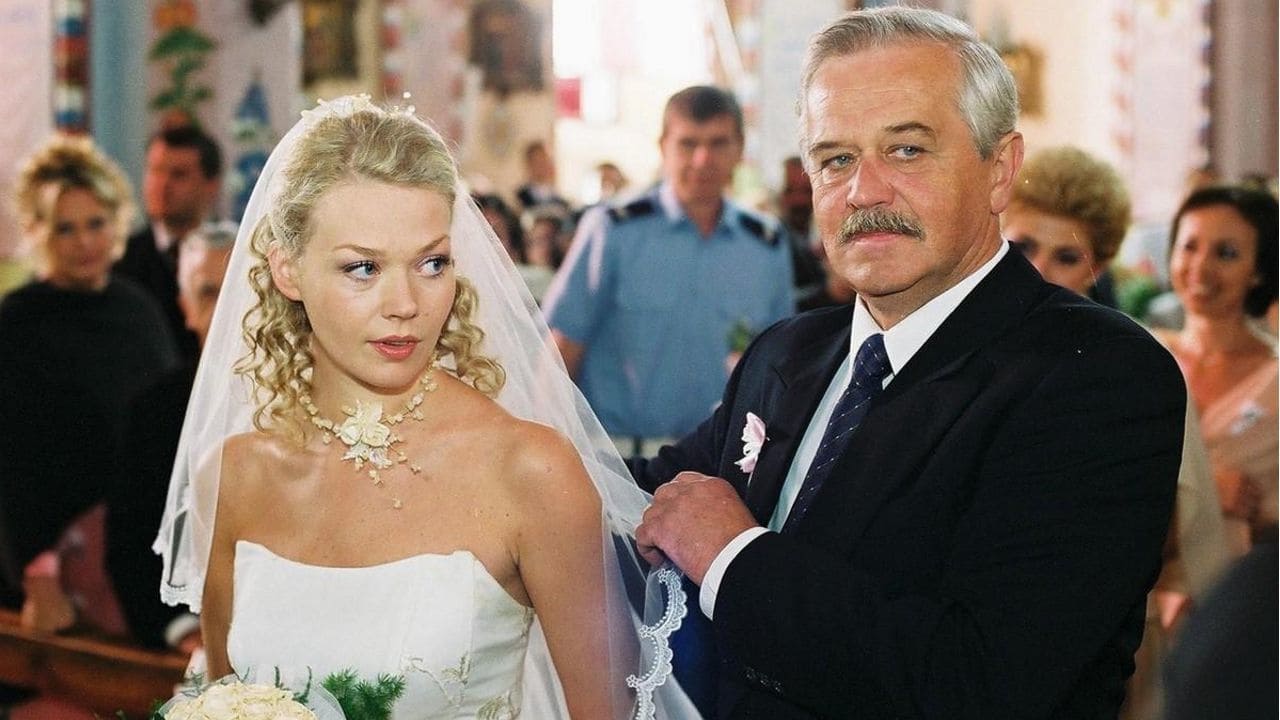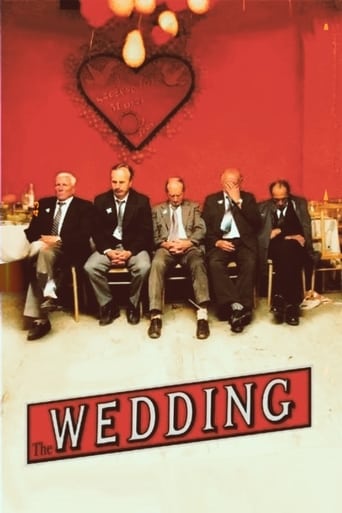

Very true to life.Very Slavic - lots of drinking - very believable but boring and the film goes on way too long!!!!The plot is plausible but uninteresting.The characters seem real but very disconnected. The characters are well acted but very two dimensional.Photography goes from the film camera to the cheap video camera used by the videographer shooting the wedding.The sound, music and other technical aspects are weak.True vignette of eastern Europe.Avoid this film it is endlessly repetitive.
... View MoreThis movie is great! It shows the Polish rural life in all it's majestic glory. Sure not all of these things happen at every wedding but most of these things I've heard or witnessed myself such as the father making a "grand" display of his wealth, the offering of a daughter for a "better" life or the finality of the wedding when the grooms father tells everyone that their money sucking leaches and they should get the f**k out.Most people from the west might not understand some of the situations but situations like this do happen and that's what makes the movie so great.
... View MoreA delightful and meticulous farce with a touch of poetic realism (something along the lines of "La règle du jeu" by Jean Renoir updated and in a Polish context). Wedding reception, the puffed-up romantic climax of the "happiest day of your life", is turned into a satiric interpretation of the materialistic laws of the "money rules" society and the "keeping up with the appearance" attitude that comes with it. At times at an incredible pace, the montage shows guests playing vulgar games, while the bride's grand-father's corpse (and the old values with him) are already rotting in the toilet. And then there's vodka, the other ever-powerful social lubricator of all Slavic cultures (and some others as well; mind me saying, as Aki Kaurismäki depicts in his movies the same obsession found in Finland quite well, too).By choosing to portray a "typical" wedding with all its weird and, at the same time, obligatory traditions, "Wesele" manages to smuggle the wider context of social change into the world of fiction. - How about that ostentatious wedding gift, a car stolen from Germany, following the often-told joke both by Germans and Polish: go to Poland - your car already is there! Not wanting to offend the Polish culture and its traditions here, on the contrary: "Wesele" is a poignant example of merciless but humouristic self-irony in the national context; still, it manages to find its reference also in the international field, as we all in the western culture are wrapped up in a consumer-crazed society and the style of living that comes with it. So, everything has a price and is up for a bribe.The zenith comes when the bride's father - a central figure arranging everything with money, from the stolen wedding gift to driving under influence arrest - finds himself not only robbed of his money (he has it hidden in a greenhouse; as my Polish friends pointed out, the Polish do not trust banks... another subtle social commentary here), but abandoned by his wife, his daughter the bride, and even by his dog. The happy end? - Bride running away with her old boy-friend, the cameraman, finally united with her true love (maybe). At least it seems to underline the film's subversive stand, and the longing for values more profound than those found in cold cash.
... View MoreWojciech Smarzowski, one of the most talented young Polish directors, made this film to show not only a stereotypical Polish wedding reception (the word "wesele" in the title means wedding reception), but to bring into view some vivid characters, their values, and the Polish reality that has seriously changed since 1989. Wieslaw Wojnar, a rich landsman, prepares a wealthy wedding for his daughter, Kasia. He wants to show off in the village: orchestra, good food, and, most importantly, two wonderful gifts for the young couple: a car and honeymoon in Croatia. What more should they want: "there is money so there is everything!" He is deadly selfish and materialistic. But in the eyes of people: a man of honor! However, as the wedding goes on, things start to turn against him and his huge sum of money safely hidden starts to disappear...The director shows two kinds of people: the majority whose only master is money, and a small group of very few people who are aware that life and happiness mean something more than the search for riches. This is the Granpa, who symbolically says "I'll never sell my land" but "land" means, in fact, all values he lived like patriotism or love. The bride is similar: she does not only live to be rich but also knows what love should be like. Her tragedy, however, is that her new husband thinks precisely the opposite. He gets married in order to get a car from his father in law and show off among his friends. Fortunately, Kasia lives with him only one day...This group of people, like Kasia's husband, whose only happiness is to be rich are presented in very amusing contexts. Mundek, the lawyer, and many, many others. They are the gist of the comedy, really funny! But I won't say more because you should see the film for yourself. WESELE is a wonderful movie but it has to be interpreted in the right way. For those who do not know the Polish reality whatsoever, it might sometimes seem confusing. But just for the sake of fun, do see it. You will laugh most of the time, I promise. Even the horrific end for the old Wojnar is funny.One advice: don't laugh at Poles drinking so much. As a matter of fact, every nation does have its shortcomings...
... View More